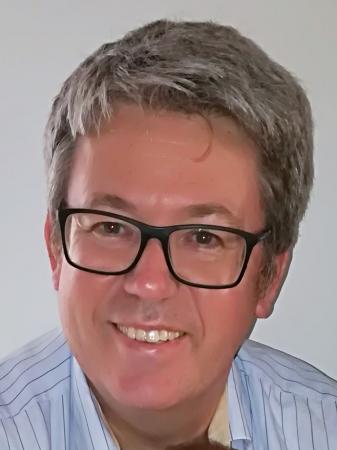
Christian Day
Christian Day
Karlsruhe Institute of Technology, Karlsruhe, Germany
Tuesday, September 21, 2021
10:00am
Virtual
Abstract: A self-sufficient fuel cycle is a significant contributor to enable commercial fusion energy. Driven by the need to reduce the tritium inventory in the systems to an absolute minimum, the work package TFV (Tritium – Matter Injection – Vacuum) of the European Fusion Programme has developed a smart three-loop fuel cycle architecture. This requires the continual recirculation of gases in loops without storage, avoiding hold-ups of tritium in each process stage by giving preference to continuous over batch technologies, and immediate use of tritium released from tritium breeding blankets. In order to achieve this goal, a number of novel concepts and technologies had to be found and their principle feasibility to be shown.
This seminar talk will start from a functional analysis of the fuel cycle, and introduce the results of a rigorous technology survey and ranking which provided the prime technology candidates for all fuel cycle system blocks. The main boundary conditions to the plasma (breeding blanket, matter injection and particle exhaust) will be described and it will be shown how they were derived from the assumed plasma scenario. Based on this, the fuel cycle architecture will be delineated and required operational windows of the sub-systems defined, based on a number of figures of merit. To validate this, various R&D lines were established, the main results of which are reported, together with the key technology developments. Finally, an outlook towards the conceptual design phase of a European DEMO is given. It will be delineated which main design and technology R&D steps are needed to achieve the requested maturity of all systems by 2027.
Bio: Chris Day, chemical engineer by education, is leading the fuel cycle project within the European DEMO programme. He received the PhD in process engineering and thermodynamics in 1995. At Karlsruhe Institute of Technology (KIT) he is leading the Vacuum Department at the Institute of Technical Physics, and is currently responsible with his team for developing the divertor pumping systems of JT-60SA and DTT. He is in the Executive Board of the German Vacuum Society and is teaching fuel cycle/tritium technology and vacuum technology in the Fusion Master Programme at University. In 2014 he was awarded the European Prize for Innocation in Fusion Researche for his pioneering work on new fuel cycle concepts. His research interests do further cover rarefied gas dynamics, pellet injection, divertor particle exhaust modelling, hydrogen-metal interactions, and large vacuum systems in general (at the moment mainly the Einstein Telescope).